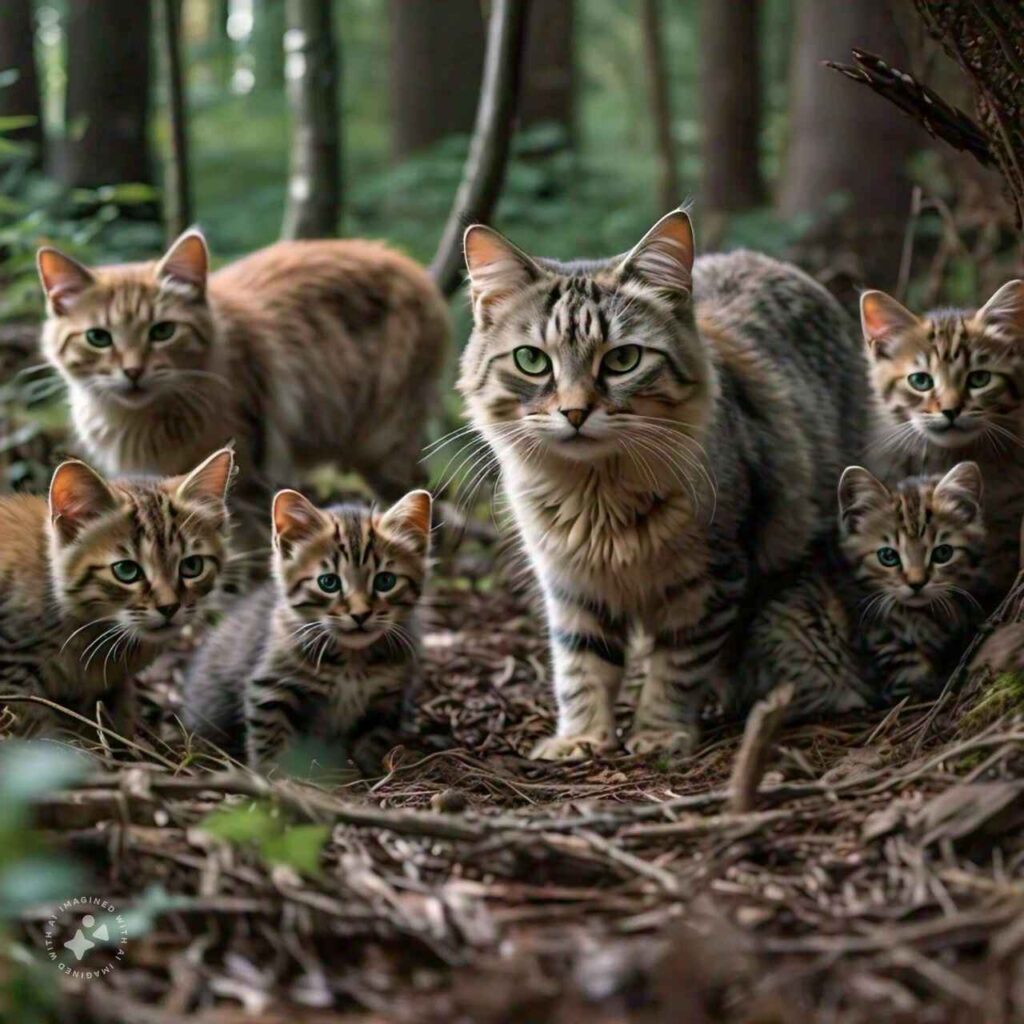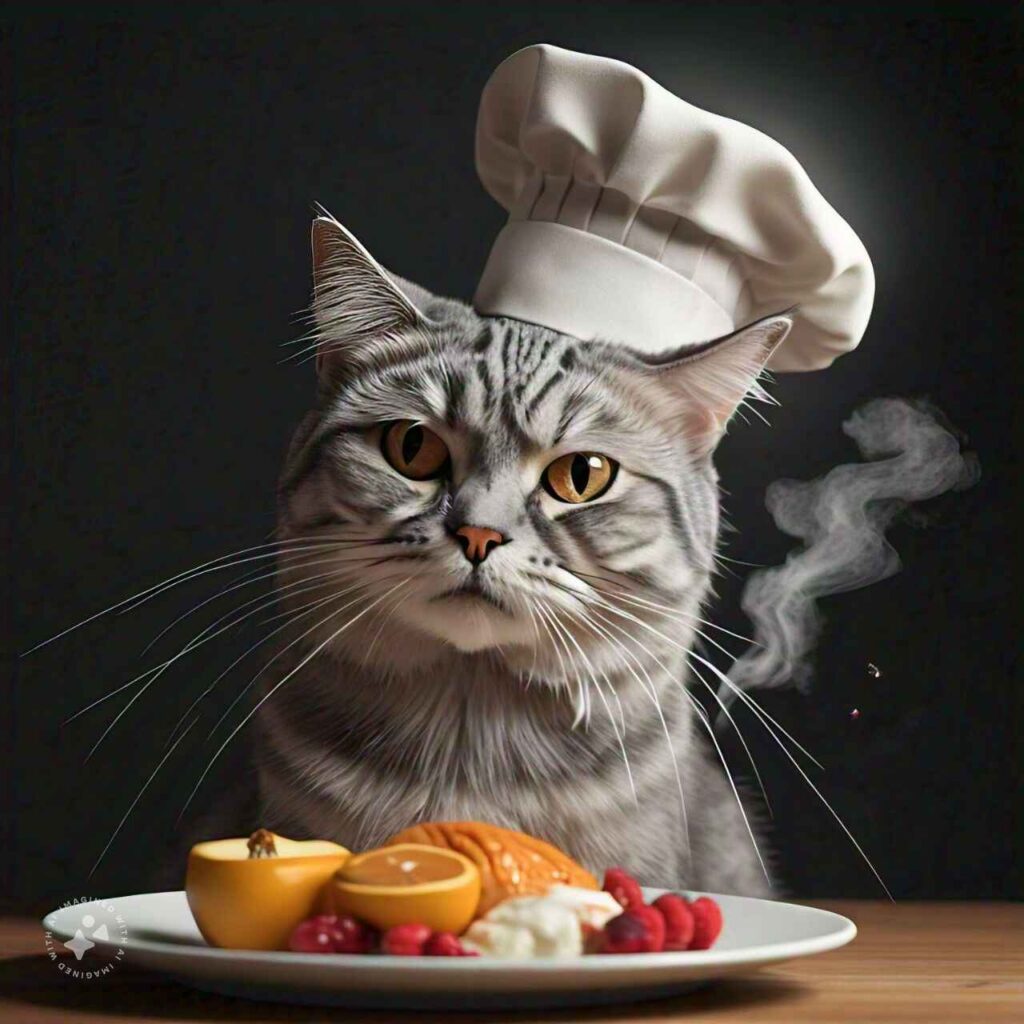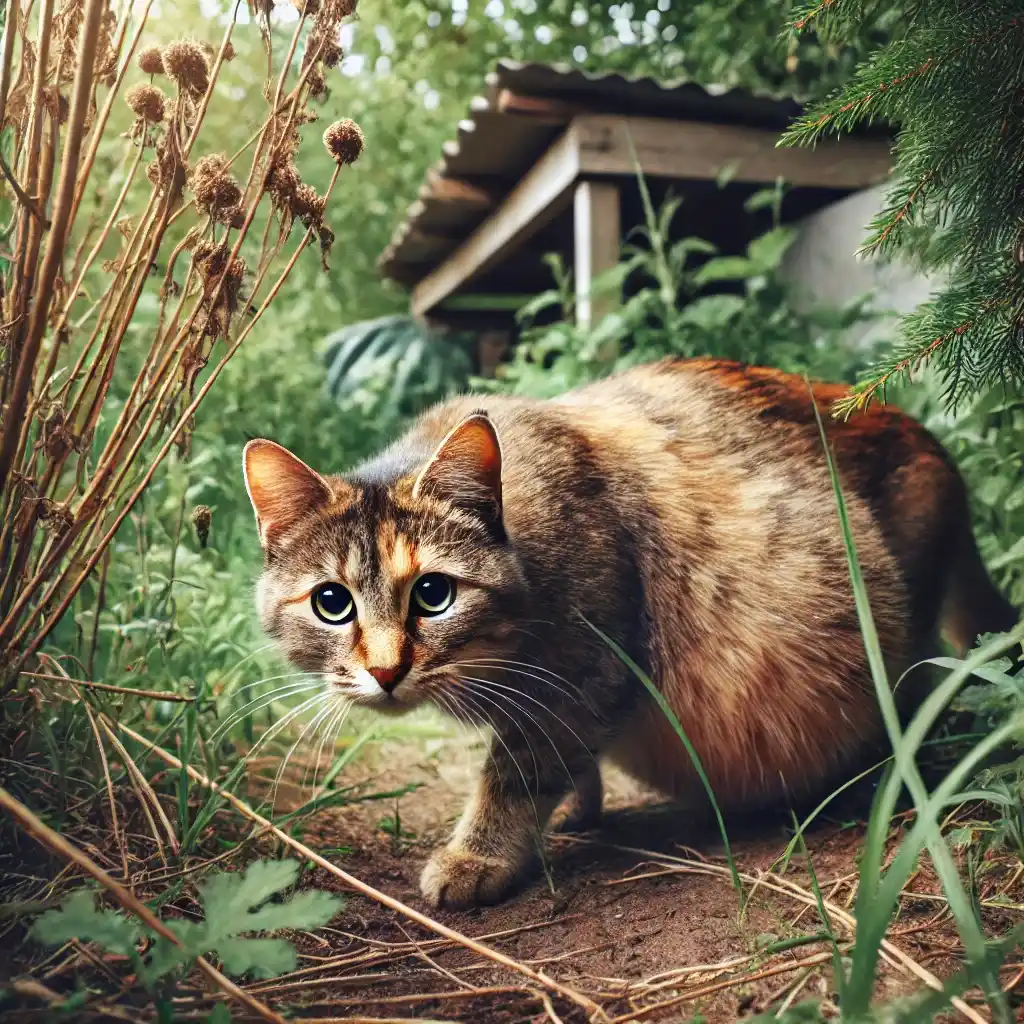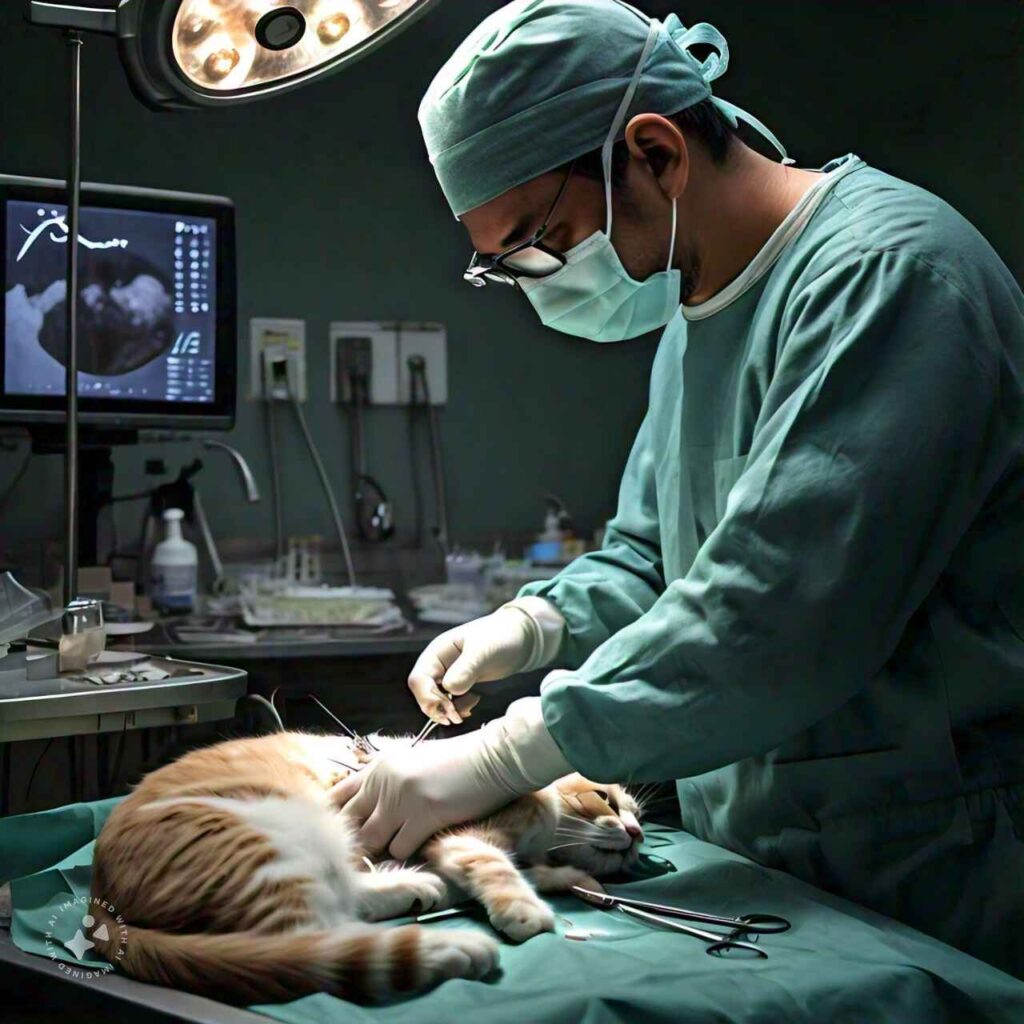1 Introduction: Why Cat Nutrition Matters
When it comes to caring for your cat, one of the most important responsibilities is ensuring they receive the right nutrition. Just like us, cats require a balanced diet to maintain their health, energy, and happiness. By feeding your cat properly, you can help them avoid common health problems and improve their overall well-being.

Proper nutrition helps your cat grow strong, maintain a shiny coat, keep their immune system in check, and live a longer, happier life. With so many options for cat food, it’s important to know what your feline friend needs to stay healthy. In this article, we’ll walk you through essential cat nutrition tips to keep your cat healthy and happy, from the right food to how much to feed and more.
2 Essential Nutrients for a Happy, Healthy Cat
To keep your cat healthy, it’s important to understand what nutrients they need in their diet. Cats are obligate carnivores, meaning they need animal-based proteins to survive. This section will highlight the most essential nutrients required for your cat’s diet and explain their importance.
- Protein: Protein is the most important nutrient for cats. It helps them build and maintain muscle and supports essential bodily functions. Cats require high-quality animal-based proteins such as chicken, turkey, or fish. Plant-based proteins don’t provide the complete amino acids that cats need, so it’s important to ensure your cat’s food has a high animal protein content.
- Fats: Fats provide energy and are essential for brain function and a shiny coat. Omega-3 and Omega-6 fatty acids are important for your cat’s overall health. These healthy fats come from sources like fish oil and chicken fat. Make sure the food you choose contains these healthy fats to keep your cat’s skin healthy and their coat smooth.
- Carbohydrates: Unlike dogs or humans, cats don’t need a lot of carbohydrates. While small amounts of carbs can provide some energy, too much can lead to weight gain. It’s best to choose food with minimal carbs, especially grains, which aren’t a natural part of a cat’s diet.
- Vitamins and Minerals: Vitamins and minerals are necessary for a variety of bodily functions. Vitamin A supports good vision, while vitamin D helps with bone strength. B-complex vitamins are vital for energy production, and minerals like calcium and phosphorus support strong bones and teeth. Always ensure that your cat’s food contains the necessary vitamins and minerals.
- Water: Hydration is crucial for your cat’s health. Many cats don’t drink enough water, which can lead to problems like urinary tract infections and kidney disease. Wet food can help keep your cat hydrated, but always ensure fresh water is available.
By providing these essential nutrients, you’ll set a strong foundation for your cat’s long-term health.
3 Choosing the Right Food for Your Cat
The type of food you choose for your cat can greatly impact their health. With the wide variety of options out there, choosing the best food can be quite overwhelming. Here’s what you need to know when choosing the right food for your cat:
- Dry, Wet, or Raw Food: The three main types of cat food are dry, wet, and raw. Each has its own benefits:
- Dry Food (Kibble): Dry food is convenient, and affordable, and can be left out for your cat to nibble on throughout the day. However, it has a low moisture content, so it’s important to make sure your cat drinks plenty of water.
- Wet Food: Wet food has a high moisture content, making it great for hydration. It can be more expensive, but many cats prefer the taste and texture. Wet food is often better for older cats or those with urinary issues.
- Raw Food: Some pet owners opt for raw diets, believing it’s closer to a cat’s natural diet in the wild. If you choose a raw diet, make sure it’s balanced and prepared properly to avoid harmful bacteria or missing nutrients.
- Reading Cat Food Labels: Always check the ingredient list before buying cat food. The first ingredient should be a high-quality animal protein like chicken or salmon. Avoid foods with fillers, artificial preservatives, or too many grains, which can upset your cat’s stomach.
- Avoiding Harmful Ingredients: Some cat foods contain ingredients that can be harmful or offer little nutritional value. Avoid cat food with artificial colors, flavors, or preservatives. Ingredients like cornmeal, wheat, and soy are common fillers but provide little nutritional benefit to cats and may even cause allergies or digestive problems.

When selecting food, it’s best to choose high-quality products that match your cat’s specific needs, age, and lifestyle.
4. Feeding Tips for a Healthy Cat
Feeding your cat the right way is just as important as choosing the right food. Here are some tips to help you establish a healthy feeding routine:
- How Much to Feed: Cats’ nutritional needs vary depending on their age, weight, and activity level. Kittens require more calories and should be fed more often, while adult cats typically need to be fed twice a day. Check the feeding recommendations on your cat’s food packaging and consult with your vet if you’re unsure how much to feed.
- Establishing a Feeding Routine: Cats thrive on routine, and feeding them at the same time every day can help regulate their digestive system. Set feeding times in the morning and evening to create a consistent routine that will help keep your cat healthy.
- Healthy Portion Sizes: Overfeeding can lead to obesity, which puts your cat at risk for health problems such as diabetes and joint pain. Stick to the recommended portion sizes based on your cat’s weight and adjust as needed. If your cat seems hungry between meals, offer a few healthy treats or playtime to distract them.
By following these tips, you can help maintain your cat’s ideal weight and overall well-being.
5. Foods to Avoid for Your Cat’s Safety
There are several human foods that are dangerous for cats, and it’s important to keep these out of their reach:
- Chocolate contains theobromine, a substance that is harmful to cats. Even small amounts can cause vomiting, diarrhea, and in severe cases, seizures or death.
- Onions and Garlic: Onions, garlic, and related plants can damage your cat’s red blood cells and lead to anemia. These ingredients are toxic in both raw and cooked forms, so avoid giving your cat any food that contains them.
- Grapes and raisins have been linked to kidney failure in cats. Even small amounts can be dangerous, so it’s best to keep them away from your feline friend.
- Dairy Products: While many people believe that cats love milk, most cats are lactose intolerant. Dairy products can cause stomach upset, including vomiting and diarrhea.
- Raw Fish and Eggs: Raw fish contains an enzyme that can destroy essential vitamins in your cat’s body, while raw eggs may contain harmful bacteria like salmonella. Always cook these foods thoroughly if you plan to feed them to your cat.
By avoiding these foods, you can keep your cat safe from potential health risks.
6. Treats and Snacks: Keeping it Balanced
Treats are a great way to bond with your cat, reward good behavior, or simply make them happy. However, treats should always be given in moderation to avoid unbalancing your cat’s diet.

- Healthy Treat Options: Choose treats that are made with real meat and avoid ones with artificial additives. Freeze-dried meat treats are a great option because they’re high in protein and low in additives.
- Keep treats to a minimum, ensuring they don’t exceed 10% of your cat’s total daily calorie intake. Overfeeding treats can lead to weight gain and can throw off the balance of your cat’s diet.
Remember, while it’s tempting to spoil your cat with treats, moderation is key to maintaining their health.
7. Nutrition for Special Needs Cats
Some cats have specific nutritional needs based on their age, weight, or health conditions. Here’s how to address those needs:
- Kittens: Kittens need a diet rich in calories, protein, and essential fatty acids to support their rapid growth and development. Choose specially formulated kitten food that provides all the necessary nutrients.
- As cats grow older, their dietary requirements evolve to match their changing nutritional needs. Senior cats may require fewer calories but still need high-quality protein to maintain muscle mass. Senior cat foods often contain added ingredients to support joint health and digestion.
- Cats with Allergies: If your cat has food allergies or intolerances, you may need to switch to a hypoallergenic diet. Limited-ingredient diets are often a good choice, as they reduce the likelihood of triggering allergies.
- Overweight or Underweight Cats: For overweight cats, switch to a lower-calorie formula and increase their physical activity. Underweight cats may benefit from higher-calorie, nutrient-dense foods to help them gain weight in a healthy way.
By understanding your cat’s specific nutritional needs, you can adjust their diet to keep them healthy at every stage of life.
8 Supplements and Vitamins: Do Cats Need Them?
Most cats can get all the nutrients they need from a balanced diet, but in some cases, supplements can be beneficial:
- When to Use Supplements: If your cat has specific health issues, such as joint pain, digestive problems, or skin conditions, your vet may recommend supplements. For example, omega-3 fatty acids can help with inflammation and skin health, while probiotics may support digestion.
- Common Supplements: Fish oil is a common supplement that supports skin, coat, and joint health. Other supplements include taurine (an amino acid that is essential for heart and eye health) and glucosamine (for joint support).
Always consult with your vet before adding any supplements to your cat’s diet, as too much of certain vitamins or minerals can cause harm.

9 Keeping Your Cat Hydrated
Water is essential for your cat’s health, yet many cats don’t drink enough on their own. Dehydration can lead to serious health issues, including urinary tract infections and kidney disease.
- Encouraging Hydration: If your cat isn’t drinking enough water, try adding a cat water fountain. Cats are often attracted to running water, which may encourage them to drink more. You can also mix water into their wet food or add broth to their meals to boost their moisture intake.
- Importance of Hydration: Keeping your cat hydrated is especially important if they primarily eat dry food. Always ensure your cat has access to clean, fresh water, and monitor their drinking habits for any signs of dehydration, such as dry gums or lethargy
Why is protein important for cats?
Protein is crucial because cats are obligate carnivores, meaning they rely on animal-based proteins for muscle growth, energy, and overall bodily functions.
Should I feed my cat dry or wet food?
Both have benefits. Dry food is convenient, but wet food provides more moisture, which helps with hydration, especially for cats prone to urinary issues
What foods are harmful to cats?
Avoid giving your cat chocolate, onions, garlic, grapes, raisins, and raw fish, as they can cause serious health issues like kidney failure and anemia
How much should I feed my cat?
Feed your cat according to their age, weight, and activity level. Adult cats generally need two meals a day, with portion sizes adjusted as per their needs.
How can I keep my cat hydrated?
Ensure fresh water is always available. You can also use a water fountain or add water to their wet food to encourage them to drink more
10 Conclusion
To keep your cat healthy and happy, it’s essential to provide a balanced diet that meets their unique nutritional needs. By following these cat nutrition tips, you’ll help your cat maintain an ideal weight, enjoy more energy, and live a long, happy life.
Remember, good nutrition is the foundation of your cat’s well-being. Whether it’s choosing the right food, feeding them the proper portions, or keeping them hydrated, your efforts will ensure your cat stays healthy, strong, and full of life.
